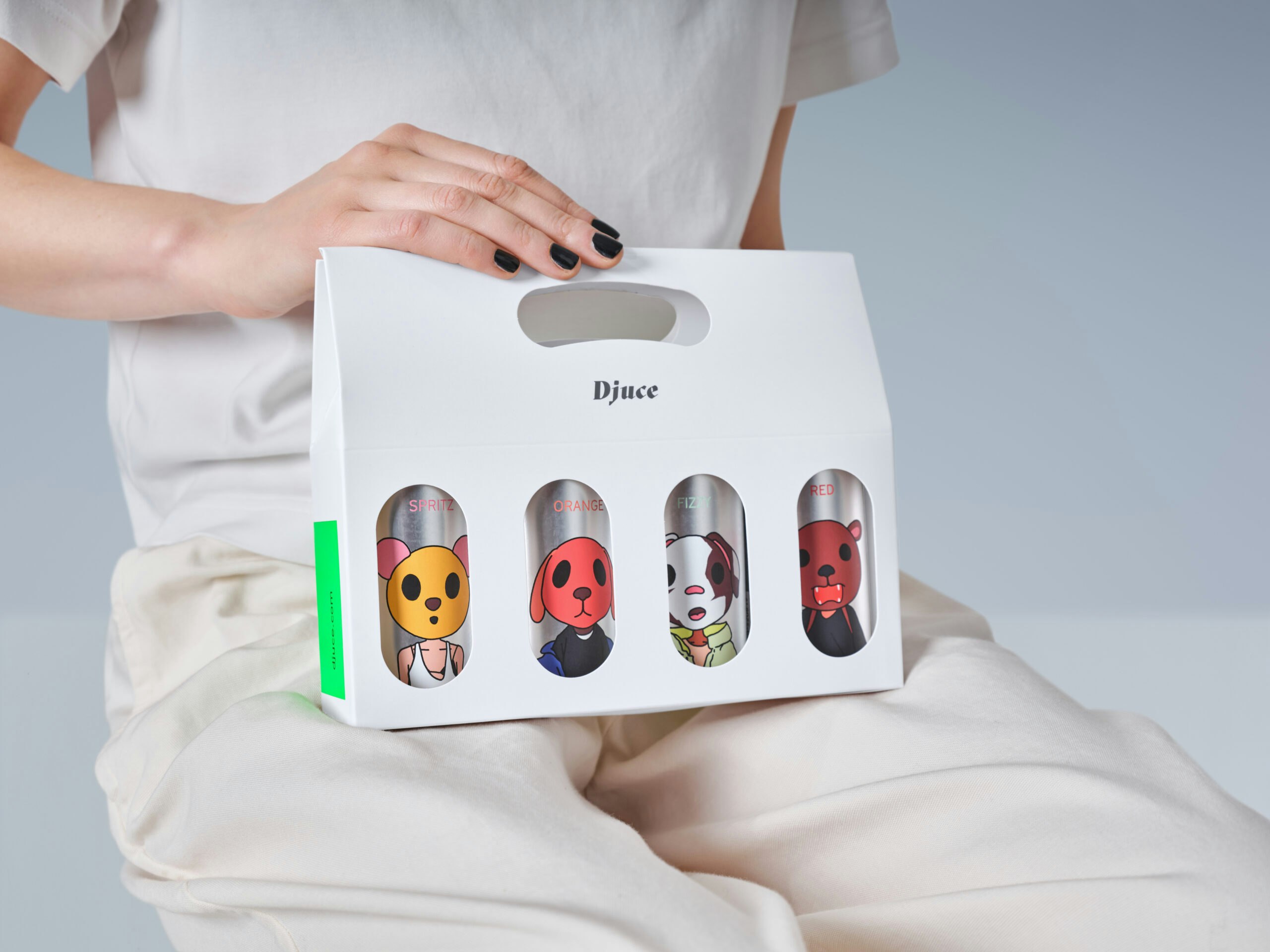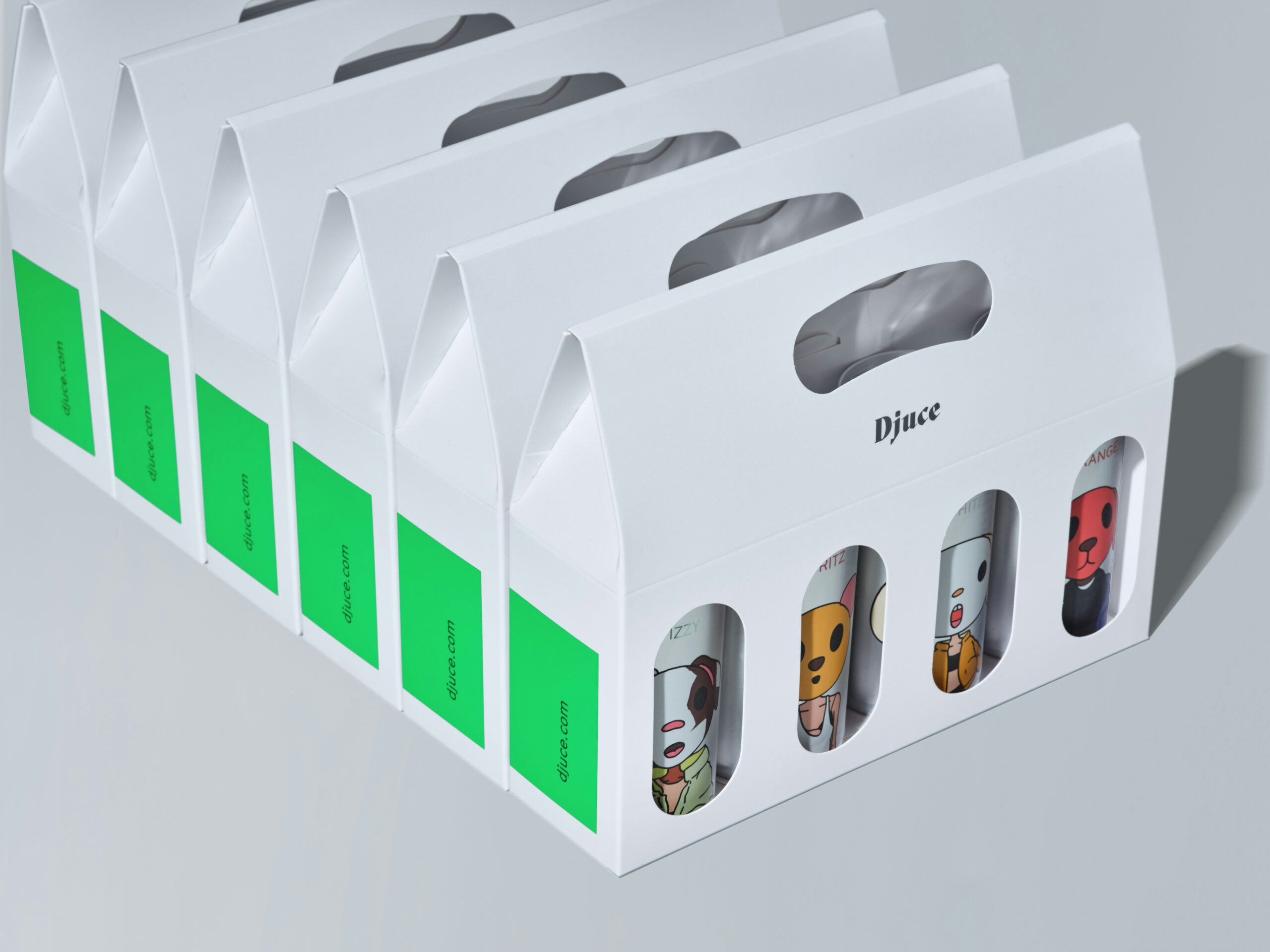PACKHELP PACKAGING SERVICES
Djuce: Crafting a greener wine experience with smart packaging



The concept for sustainably farmed, canned wine brand Djuce came from a long-standing desire to reimagine a beloved yet traditionally constrained product.
INDUSTRY
BEVERAGES
LOCATION
GERMANY

OBJECTIVES
Showcase Djuce's beautiful cans.
Limit the amount of air, maximise packing space
Use sustainable packaging
Protect the cans in transit

RESULTS
Created a one-layer mailer box design
Fully-custom box designed with sizing based on the product’s cans
FSC-certification obtained and recyclable paper used
Created a custom grid system inside all boxes to support and protect the cans.
Djuce for the Planet
Djuce wanted to produce exceptional wine while also championing environmental preservation. Their solution? Shifting from using traditional glass bottles to aluminium cans. This seemingly small change allowed the brand to embrace environmental sustainability while inviting customers to try something unique that tastes (and looks) amazing.
Founders David Dworsky, Philip Marthinsen, Victor Köhler and Pontus Lindqvist saw immense potential in making the wine experience more accessible, playful and sustainable. By choosing aluminium cans as their primary wine packaging, they’re reducing their packaging CO2 emissions by a staggering 79% when compared to emissions from traditionally used glass bottles. And, with their modern, visually-led approach and dedication to a more sustainable wine industry, Djuce has overcome initial scepticism to become an exciting example of how to imbibe better.

Packhelp’s Services in Use:

Product Assessment and Material Selection

Customised Construction
Packaging with Great Taste
At Djuce, the packaging is a crucial part of the brand experience. As customers shop online instead of at a brick-and-mortar store, the packaging has to replace the role of the physical shop. Their boxes communicate Djuce’s values, inviting customers to join their vibrant community of wine lovers, while also expanding brand messaging that doesn’t fit on the cans. Hidden messages under the cans create intrigue, while the cans themselves feature contemporary art from creatives around the world for an extra bold unboxing experience that’s evident in every detail.
Working closely with Packhelp, a one-level box was created that took into consideration the specific can sizes and weights, as well as different quantities of cans. The sturdy mailer box was selected as a base for the packaging with special inserts designed to secure the cans and protect them during transit. They also designed a four-can gift pack with a handle that delivers the equivalent of a bottle of wine in a recyclable, ready-to-go format that switches up the traditional way of “bringing a bottle”.


Key Learnings
Being a startup in a complex industry, Djuce encountered many challenges inherent to the wine market, such as navigating legal and regulatory hurdles and overcoming scepticism. Thankfully, the receptiveness of both wineries and customers is shifting over time, so they anticipate changes in their future packaging as the business grows, like diverse can sizes and new retail packs for broader distribution – all in line with their pursuit of creative innovation, sustainability, and seriously good wine, of course.
